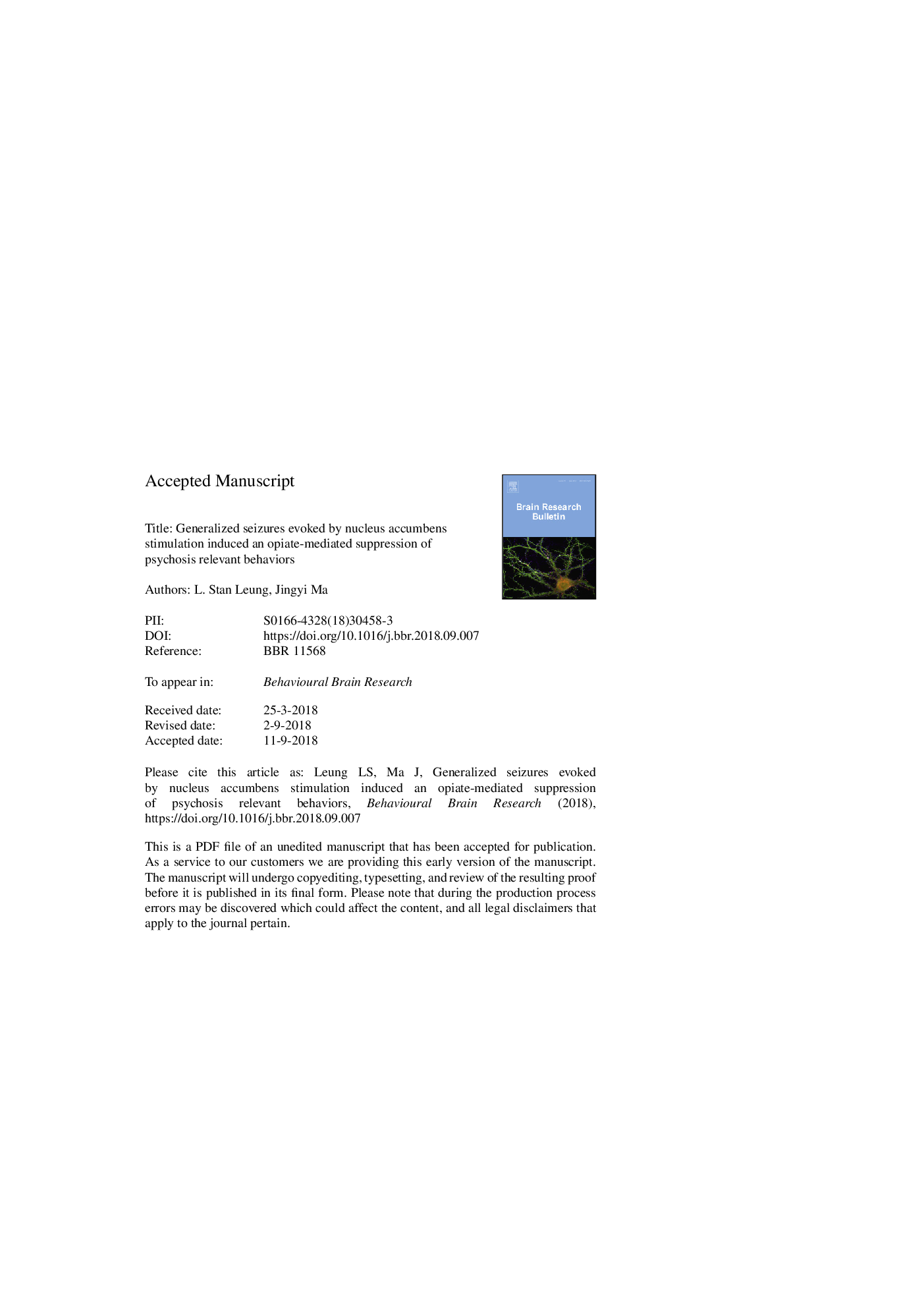| Article ID | Journal | Published Year | Pages | File Type |
|---|---|---|---|---|
| 10138328 | Behavioural Brain Research | 2019 | 18 Pages |
Abstract
We have previously demonstrated that kindling of the nucleus accumbens (NAc) induced psychosis relevant behaviors only after one, but not after five, stage-5 seizures, suggesting that five stage-5 NAc-evoked seizures antagonized psychosis relevant behaviors in rats. We hypothesized that brain opioid receptors are responsible for seizure-induced reduction of psychosis relevant behaviors in NAc kindled rats. Rats received NAc kindling until a stage-4 seizure was induced, after which naloxone, a non-specific opioid receptor antagonist, at dose of 1 or 10âmg/kg i.p., or saline (0.3âmL) i.p., was injected 15âmin before each kindled seizure. Duration of afterdischarge (AD) was not significantly different among naloxone- and saline-treated groups. However, duration of postictal behavioral depression induced by a stage-5 seizure was significantly shorter in 10âmg/kg naloxone-treated than saline-treated rats, for long (>36âs) AD duration. When tested 3-4 days after five stage-5 seizures, 10âmg/kg naloxone-treated rats, as compared to saline-treated rats, showed a statistically significant loss of gating of hippocampal auditory evoked potentials, and significant reduction of startle response amplitude, but non-significant differences in prepulse inhibition and methamphetamine-induced locomotion. It is inferred that stage-5 seizures, by releasing endogenous opiates, contribute to postictal behavioral depression, and some long-term seizure-induced antipsychotic effects.
Related Topics
Life Sciences
Neuroscience
Behavioral Neuroscience
Authors
L. Stan Leung, Jingyi Ma,
